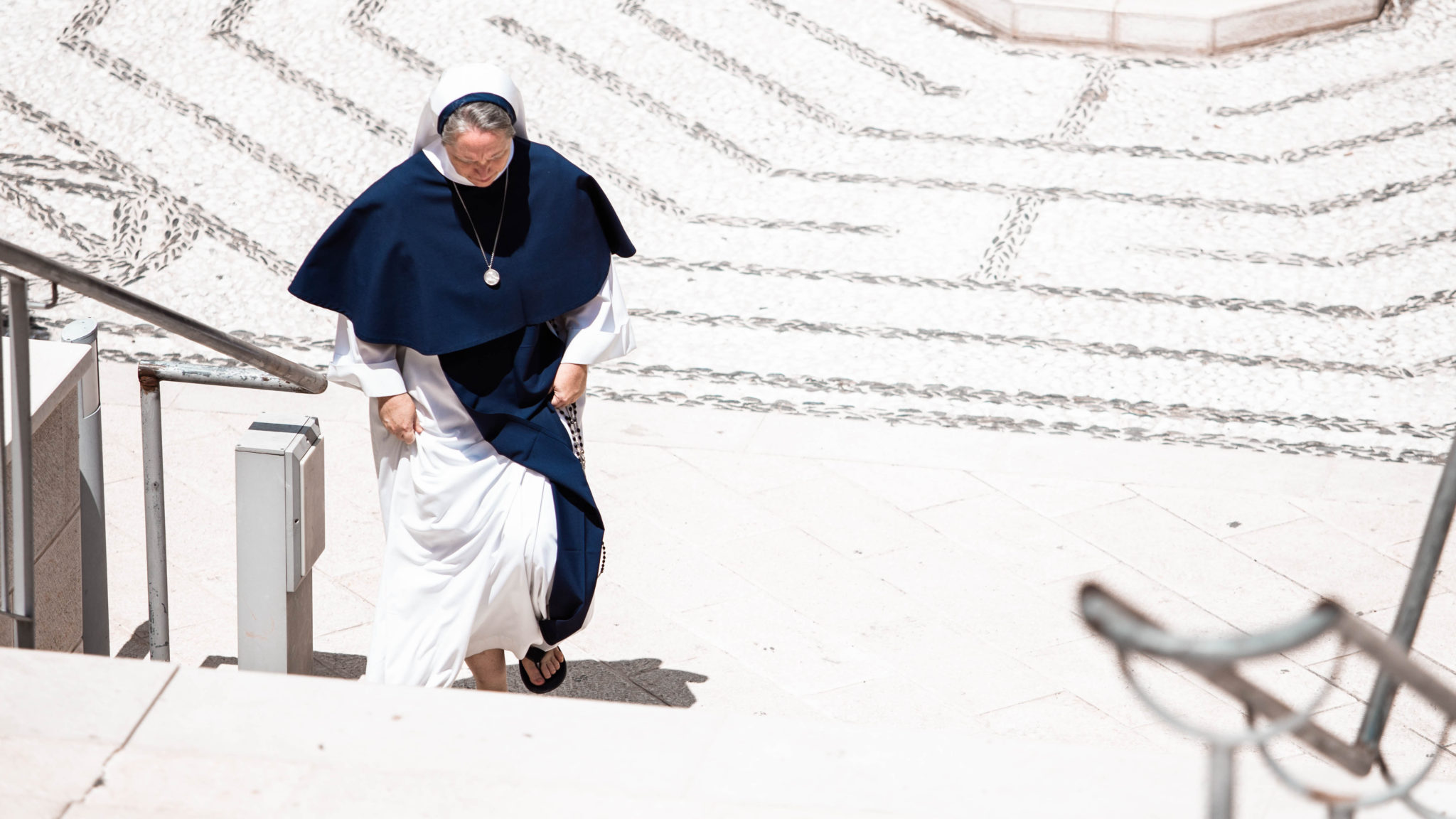
During the pandemic, I found myself quarantining alone with my two dogs. I was working full-time from home and only stepped outside my apartment to get groceries. I found myself with a lot of time on my hands — more time than I ever had — and my mind would drift. One of the pressures that kept pressing in on me was the continual frustration that, as a country, we were still plagued by so much racism and inequity.
It felt like everyday I woke up to a new news headline about the murder of a Black brother or sister, about the way in which families were being forcibly separated at the border. I found myself waiting for leaders — especially those in my community of faith — to condemn the evils of racism, white supremacy, and state violence against families. Everyday felt like another blow, another day of silence in regards to these injustices, another day of feeling like no one truly cared about this suffering.
I remember sharing these thoughts with my mother over a Facetime call one evening, and she reminded me about the life and story of St. Oscar Romero.
I knew about St. Oscar Romero my whole life, but I never really dove into his biography beyond the basic facts: I knew he was an archbishop in El Salvador, that he was vocal about justice for the poor, and that he had been assassinated. Looking back now, though, I can see that St. Oscar Romero has been following me my whole life, waiting for me to finally open up the story of his life and learn what gave him such courage and hope when he was facing such oppression and despair.
After this conversation with my mother, I remembered that I had a collection of his homilies. Because most of my evenings were spent binging Netflix or re-reading fiction books, I decided I would spend this particular evening reading about the life of Romero. What I didn’t realize was how my choice that evening would draw me into the life of a man who truly worked for the spiritual, political, and economical liberation of his Salvadoran people.
Romero spent time building carpentry as a youth, and it struck me that Jesus had the same childhood. As a young man, Romero entered the seminary and was ordained later in Rome. He had hoped to stay in Rome to continue studying theology, but because of a shortage of priests in El Salvador, his bishop called him back to assist in parish life. Romero returned with the intention to simply lead a parish — his intention was never to become a leading voice for justice and the poor during a time of civil unrest.
One event changed Romero forever. A close friend and fellow priest, Father Rutilio Grande, SJ, was working to empower the poor and the farmers who were seeking economic and political liberation. He was known to work alongside those who were being marginalized and oppressed by the government of El Salvador, and was incredibly vocal about their needs. As he was riding in the car with an old man and a teenager to a village celebration, government forces opened fire on the vehicle, killing him and the two others.
In reading and learning about the life of St. Oscar Romero it’s very easy to pick up on the fact that he was a different man after the death of his friend. In fact, Romero was known to be conservative and quiet in both his social and political opinions, but the murder of his friend changed everything for him.
This is the point in Romero’s story that resonates with me deeply — it’s this shift, this veil-torn-from-your-eyes type of moment. This pain and loss propelled Romero into his first steps to call for spiritual and physical justice for his people. From this point in time, Romero became a protagonist: in everything he did, in everything he wrote, in every moment he spent with the people of the pueblo (the people of the community), he channeled the message of liberation brought forth to us through the life, death, and resurrection of Jesus Christ.
He actively worked to empower the oppressed, and he called for economic and political structures that made space for the marginalized — centering it all on Jesus’ message of loving our neighbor. In his weekly radio homily broadcasts, Romero did not shy away from talking about specific social injustices that were occurring in El Salvador, grounding his call for justice in Jesus’ words in the Bible.
He received death threats, but these did not stop his proclamations. He was known to the pueblo as a man who was paving the way for justice to come forth, a prophetic priest and brother who had been transformed by the life of Jesus Christ — and that transformation turned him into a catalyst of liberation.
People in power felt threatened by this call to action for liberation. One morning, Romero was offering a daily Mass for a small group, and after he finished his homily he turned to sit down. A car drove by and fired several rounds through the open door of the chapel, killing Romero near the altar where he was about to offer prayers over the bread and wine that would become Jesus’ body and blood.
St. Oscar Romero gave his life in the search for justice and liberation for his people, and it was his example that I clung to during the pandemic when I was overwhelmed by the constant barrage of dehumanizing headlines. I prayed for his intercession and guidance that we could bring true justice and liberation to all marginalized and oppressed people.
Over and over again I turn back to his story and his homilies to remind me of the liberation promised to us by the God who saves us. St. Oscar Romero reminds me that I, too, am called to be a catalyst of liberation for others.
There is a story told to me by a friend who was visiting El Salvador with a group the week that Romero’s canonization was announced. They were in a village well known to Romero, and when they overheard the announcement from the Vatican on the radio, the visitors began to cheer — they thought it was incredible to be there in this village when this news arrived.
One of the group members noticed that the villagers weren’t expressing the same level of emotion toward the announcement, however. When they inquired why, an older woman from the village shrugged her shoulders slightly and said, “We always knew here that he was going to be a saint. We all knew. We were just waiting for the rest of the world to catch up.”
St. Oscar Romero, ruega por nosotros — pray for us.
***
The heroic example of Archbishop Oscar Romero inspired Jeanette's faith and work. She got to travel to Rome to see him canonized as a saint in 2018 — here’s a story about how his example shaped her life.




















